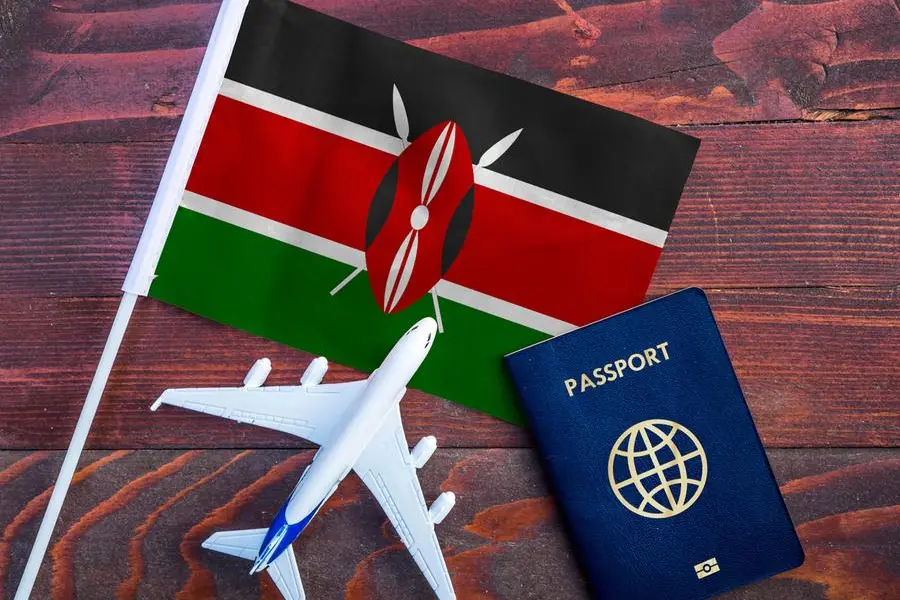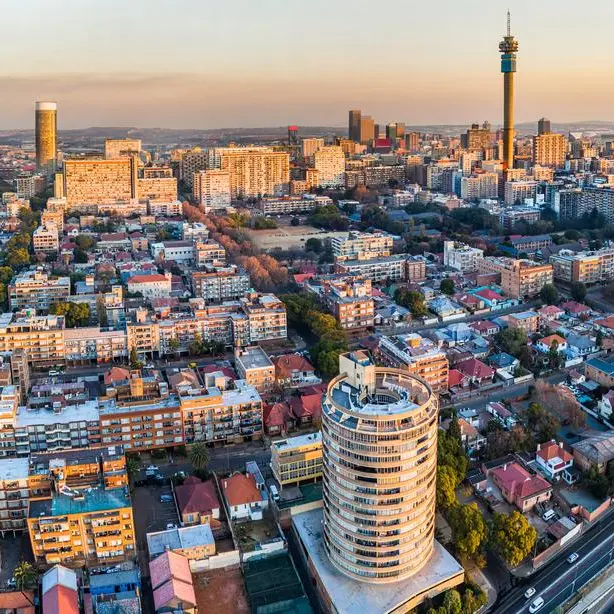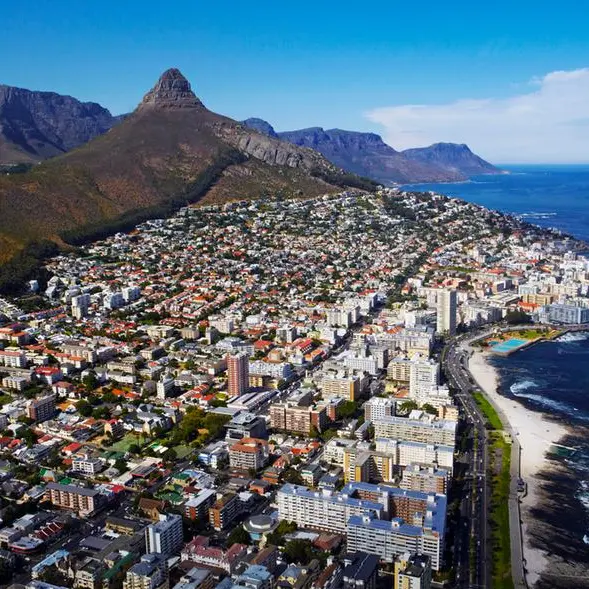PHOTO
Kenya’s decision to revise visitor entry authorisation fees may jolt an overall tourism scene in the East African region, even as authorities in Nairobi say they will monitor for impact.
This week, Kenya formally revised and introduced new electronic travel authorisation (eTA) fees, raising concerns from the tourism stakeholders who worry it could be another barrier to free movement the sector relies on to boost sales.
The eTA, first launched in January, was President William Ruto’s ambition to raise tourism numbers beyond the pre-Covid-19 levels when at least 1.2 million arrived in the country.
Some of those used to travel to Kenya, Uganda, and Rwanda under an EAC tourism visa arrangement that cost $100 and allowed visitors up to 90 days stay.
Even though the EAC tourism visa was meant to raise visitor numbers in the bloc, some countries like Tanzania had been reluctant to sign on it, arguing the arrangement gave priority to Kenya.
But even though the visa remains on the books, countries like Rwanda have since waived most visa requirements, giving opportunity to travellers unfettered access, as long as they carry valid documents.
Kenya’s eTA, although mostly influenced by the security needs to monitor guests coming in, was also meant to respond to the dynamics of opening up the borders for more numbers.
However, with visa charges remaining relatively low in the region, Kenya’s high visa fees are unlikely to have the effect that it was meant for, that is to attract more visitors.
This week, Musalia Mudavadi, the acting Cabinet Secretary for Interior and National Administration, announced in a gazette notice new eTA fees for visitors in transit, student applications, multiple entry charges, and passenger inbound and outbound charges. All these could significantly increase the cost of those intending to visit Kenya.
The notice dated November 8, 2024, said Kenya would charge all inbound and outbound passengers $4.95 on their air tickets some sort of insurance levy, whereas the student eTA application fee would cost $30.
Tourists from the US, which is one of the top Kenyan tourist markets, seeking five-year eTA will be charged $185 whereas other travellers applying for one-year multiple entry eTA will now cost them $300, down from $500.
With Rwanda having removed visa fees, Uganda charging less visa fee together with Tanzania, Kenya’s ETA visa is more costly than the rest of the East Africans.
Similar factorsThe cost of a visa depends on how long you plan to stay in Uganda. Costs can range from $50 to $200.
Single entry e-visas start at around $50. An East African Tourist e-visa starts at $100. If you’re planning multiple entries into Uganda with an e-visa, pricing ranges from $100 to more than $200, depending on length of visa and similar factors.
Within the EAC region, it is cheaper to travel to Rwanda than Kenya because the country has the most favourable travel arrangements compared to the latter’s eTA requirements.
In Rwanda, citizens of country members to the African Union, Commonwealth and La Francophonie can get free visas upon arrival in Kigali for a visit of 30 days.
A citizen of the EAC can receive a pass or entry visa free of charge upon arrival for a six-month stay in Rwanda.
Citizens of countries that are not visa-exempt have the option of applying online or at the Rwanda Diplomatic Mission of the country of residence before departure.
The visa fees must not exceed $50 for a single-entry visa or $70 for multiple entry.
It’s only Tanzania that has similar charges to Kenya and in some cases has more stringent entry requirements in the region than her neighbours.
An ordinary visa in Tanzania costs $50, a multiple entry visa: $100, business visa: $250, transit visa: $30, student visa: $50 for a single entry for three months, re-entry pass: $50, special pass: $600, student pass 1: $200, student pass 2: $100 and dependent pass: $120.
Burundi charges a single entry visa: $70 for one month. Multiple entry visa: $90 for a month. Transit visa: $40 for three days.
Since January 2024, all visitors travelling to Kenya, including those previously visa-exempt, are now required to register and obtain authorisation to travel into the country through the eTA system.
Travellers coming from countries with bilateral agreements (eTA-free countries) and diplomats on official duty have been exempted from eTA charges.
The system exempts East African Community citizens, while a number of other countries, including South Africa and Ethiopia are exempted from paying the fees on the eTA.
Yet Nairobi’s new eTA rates mean travellers have an additional requirement to visit Kenya.
Officials were, however, categorical in that they were still checking with neighbours and assessing their figures to determine whether eTA has had a positive or negative impact on travel numbers.
Kenya has not formally published figures since January, or from February and June, when adjustments and exemptions were made on eTA.
Kenya will also require the declaration of International Mobile Equipment Identity (IMEI) numbers for mobile devices starting January 1, 2025.
Tourism stakeholders raised concerns over the increasing fees and charges, saying it would scare away tourists.
Tourism Cabinet Secretary Rebecca Miano said the government would monitor the impact of the eTA fees and review where it hurts the sector. But she did not provide any assurances on whether that review will be downwards.“Some of the eTA fees that have been introduced were being reduced. But we are going to see feedback based on the product that we’ll be offering for uptake,” said Miano.
Among the newly introduced products and fees is transit and long connection travellers eTA, which allows stopover passengers to leave the airport and explore Nairobi and other towns.
The government also introduced a Nomad Work Permit, where professionals from other countries involved in remote work can do their jobs from Kenya. It targets expatriates.“Those with long flights, with even a layover of five hours, 10 hours, have not been able to leave the airport at all because we did not have a transit visa.“What that means is that we can come up with packages and products. If you are in transit and you have a long layover, you will get out of the airport, sample our city, and be able to get back for your flight,” said Ms Miano.
New policyIn the new charges, travellers in transit will now have to pay an eTA fee of $20 where they will be allowed to access different tourism facilities that connect to other destinations.
Ms Miano had initially suggested she would engage other departments to see whether tourists be exempted from the IMEI requirement, which was introduced by the Communications Authority of Kenya.
Overall, Kenya, in spite of fanning for the new policy, is also aware that a bad experience could tilt the number of tourists coming to Kenya.
Ms Miano said the actual impact of the fees would be known after assessing the numbers and comparing them with neighbours.
In February 2024, Kenya waived the eTA fee for travellers from seven countries, including South Africa, Comoros, the Democratic Republic of Congo, Eritrea, Ethiopia, Mozambique, and San Marino.
It followed an outcry after nationals from these countries got into nightmares landing in Kenya. Their countries have often granted visa-free arrivals for Kenyans.
These countries were exempt because they had signed visa waiver agreements with Kenya before the eTA was introduced.
And in June 2024, Kenya waived the eTA fee for travellers from Botswana, eSwatini, Gambia, Ghana, Lesotho, Malawi, Mauritius, and Sierra Leone. This was also due to a reciprocal visa waiver agreement signed in 2023.
Kenya Coast Tourism Association (KCTA) chairman Victor Shitakha said increasing tourism charges would make Kenya an unattractive tourism destination.“We need to have motivation in the sector rather than constant increase and introduction of new levies,” he said.
Another hotelier, Mohammed Hersi, on travel insurance said: “Any traveller will buy insurance cover before leaving their home countries. We also buy our own private covers before we leave Kenya.“Tourists coming to Kenya always have their travel insurance, including international medical cover. No tourist has ever asked for help from Kenya when they fall ill or require medical care. Their insurance cover will pay any hospital in Kenya, including flying doctor services and body repatriation in case of death.”Mr Hersi urged the government to focus on issues that promote tourism rather than attempting to solve a problem such as the health of travellers that doesn’t exist.“Well, if the government insists on charges and levies, tourists will simply move to another destination since we aren’t alone. If it’s a beach destination we have them in more than 40 countries and; very 300 destinations,” he said.
According to Mr Hersi, more than 90 per cent of today’s travellers have insurance bought in their country.
The new charges add to a number of charges introduced in the past two years by the Kenyan government, which tourism stakeholders say are a hindrance to the rebound of the sector.
On the IMEI, Busia Senator Okiya Omtatah disputed its introduction saying it was not about taxes but about surveillance.“This is not about taxes. Let’s be truthful. What has IMEI got to do with taxes? This is about surveillance. And we will resist it on the basis of our privacy and data protection laws,” he said.“Tracking your IMEI means your security, safety, and privacy are out the window.”
© Copyright 2022 Nation Media Group. All Rights Reserved. Provided by SyndiGate Media Inc. (Syndigate.info).





















